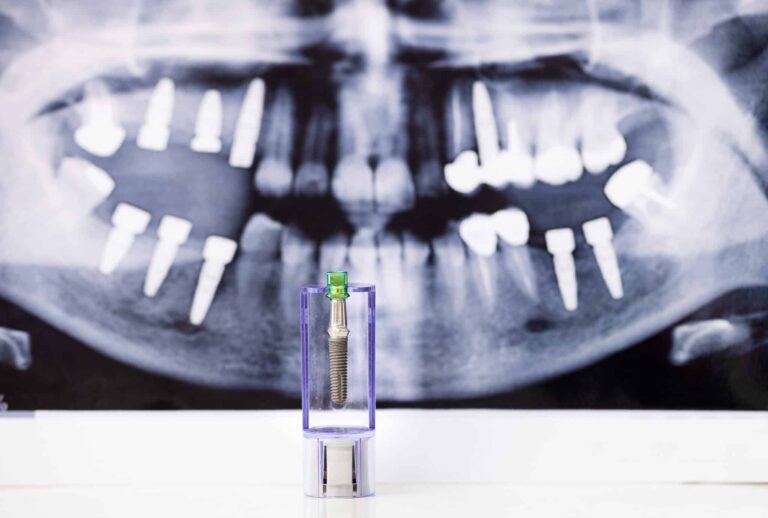Is your dental implant sore, swollen, sensitive, or loose? This state-of-the-art tooth replacement option has a success rate of 95%, which means dental implant failure is still a possibility. Your dental implant can begin to show signs of failing not long after placement or many years afterward, so it’s important to know what to look out for.
Fortunately, at Jacksonville Complete Dentistry, we offer dental implant salvage for saving your rebuilt smile should you need it. To learn more about dental implant failure and salvage, read on or give our Jacksonville, FL office a call today.

Why Do Dental Implants Fail?
The most common cause of dental implant failure is peri-implantitis. This is an infection in the gums around the dental implant, often caused by poor oral hygiene. Over time, the bacteria eventually damage the supportive tissues around the implant post, which causes it to become loose and eventually fail. Peri-implantitis can occur many years after dental implant placement surgery or an infection can develop during the initial healing process.
There are only a few other reasons why a dental implant would fail. One would be failed osseointegration, where the body and dental implant did not fuse properly. A very serious injury to the face or jaw could potentially knock your dental implant loose. Certain medical conditions, such as osteoporosis, could also contribute to a failed dental implant.
Symptoms Of A Failed Dental Implant
The most common warning signs of a failing dental implant include:
- Pain around the dental implant
- Looseness in the dental implant
- Bleeding, swelling, or discharge around the dental implant


How Dental Implant Salvage Works
Don’t wait to call us if you notice any signs of dental implant failure. Even if you are unsure if your symptoms indicate dental implant failure, we encourage you to contact us right away. We’ll see you quickly for an evaluation and determine the state of your dental implant. In some cases, we may be able to save your smile with simple solutions like antibiotic therapy or a thorough deep cleaning. However, in more serious instances, we may need to remove your dental implant in order to treat the underlying issue.
Preventive Measures To Avoid Implant Failure
Prevention is vital when it comes to dental implants. Regular dental visits are essential for early detection and management of potential problems. Dentists may recommend specific cleaning techniques and tools to help patients maintain the area around the implant clean and free from plaque and tartar. Additionally, avoiding hard and sticky foods can protect implants from physical damage that could lead to failure.


Long-Term Care & Monitoring Of Dental Implants
Long-term care is critical to the success of dental implants. Patients should be aware of the importance of maintaining good oral hygiene and keeping regular appointments with their dental professionals. These visits allow for the monitoring of the implant, adjustment of any restorative work, and reinforcement of oral hygiene practices. With proper care and attention, dental implants can provide a lasting solution for tooth loss.
If you are considering dental implants, it is important to educate yourself on the long-term care required. This includes daily brushing and flossing, as well as regular check-ups with our team. If you’d like to learn more about the proper care and maintenance of dental implants, please don’t hesitate to reach out to our office. We would be happy to answer any questions you may have and provide guidance on how to best care for your restored smile.


